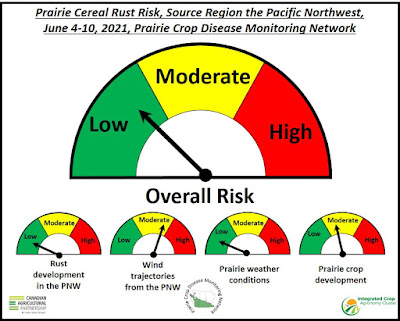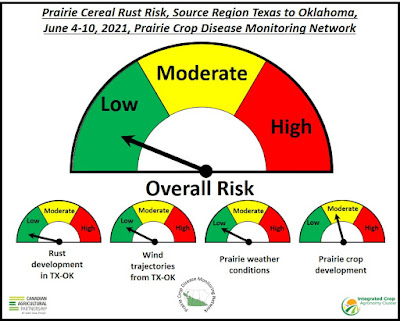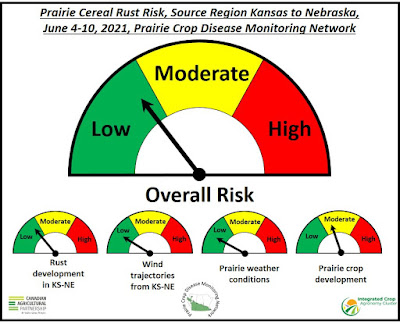The latest Prairie wind trajectory cereal rust risk report is available for download now at the following link: June 4-10, 2021 report.
As of the week of June 4-10, 2021 the overall Prairie cereal rust risk assessment and need for in-crop scouting is as follows:
Pacific Northwest: Even though there were relatively large number of reverse wind trajectories that passed over the PNW region and into the prairies, given limited stripe rust development in the PNW and dry conditions in a number of Prairie regions, for the week of June 4-10, 2021 the risk of stripe rust appearance from the PNW is limited and scouting for this disease from this US region is generally not urgent. There have been some reports of stripe rust in barley from Washington State and Oregon and central to western Prairie producers and consultants may want to keep an eye out for this disease as barley fields progress from the tillering to stem elongation stages.
Kansas-Nebraska corridor: Although stripe rust has developed in Kansas, and is progressing in Nebraska, winter wheat crops are moving towards later growth stages, while active sporulation is declining or has stopped, especially in Kansas. There were a relatively low number recent wind trajectories from this area into the Prairie region for June 4-10, 2021, and dry conditions in large areas of the Prairies. As a consequence for the week of June 4-10, 2021, the risk of leaf and stripe rust appearance from the Kansas-Nebraska corridor is generally low, especially as the Kansas winter wheat crop continues towards maturity. Scouting for these diseases in winter wheat fields, although not urgent, is recommended over the next 1-2 weeks, especially in regions of Manitoba that had some moisture during late May and early June.




